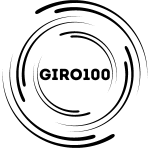When it comes to optimizing gut health, the spotlight often falls on fiber. It’s not just a buzzword—fiber plays a crucial role in maintaining a healthy digestive system. But what exactly is fiber, and how does it support gut health? Understanding these fundamentals can help you make informed dietary choices that benefit your digestive system.
What Is Fiber?
Fiber is a type of carbohydrate that the body cannot digest. Unlike other carbs that break down into sugar molecules, fiber passes through the digestive tract relatively intact. This unique characteristic allows fiber to perform several important functions in the digestive system. Fiber is divided into two categories: soluble and insoluble, each with its own benefits.
How Fiber Supports Digestive Health
Fiber supports digestive health in multiple ways. It helps to bulk up stool, making it easier to pass and preventing constipation. Additionally, fiber acts as a prebiotic, which means it feeds the beneficial bacteria in your gut. This helps maintain a balanced gut microbiome, which is crucial for overall digestive health and immune function.
Types of Dietary Fiber
To fully grasp the benefits of fiber, it’s essential to understand the two main types of dietary fiber: soluble fiber and insoluble fiber. Each type plays a distinct role in digestive health.
Soluble Fiber
Soluble fiber dissolves in water to form a gel-like substance. This type of fiber can help slow digestion, which can aid in blood sugar control and make you feel full longer. Sources of soluble fiber include oats, apples, beans, and carrots. It’s particularly effective at feeding the beneficial bacteria in the gut, promoting a healthy gut microbiome.
Insoluble Fiber
Insoluble fiber does not dissolve in water. Instead, it adds bulk to the stool, which helps it pass more easily through the digestive tract. This type of fiber is crucial for preventing constipation and is found in foods like whole grains, nuts, and vegetables. Insoluble fiber contributes to regular bowel movements and overall digestive health.
Benefits of Fiber for the Gut
Incorporating fiber into your diet can offer several significant benefits for your gut. From promoting healthy digestion to supporting the gut microbiome, the advantages of fiber are extensive.
Promotes Healthy Digestion
One of the primary benefits of fiber is its ability to promote healthy digestion. By adding bulk to the stool, fiber helps it move through the intestines more smoothly, reducing the likelihood of constipation. A fiber-rich diet ensures that your digestive system functions optimally, contributing to overall gut health.
Supports the Gut Microbiome
The gut microbiome is a complex community of microorganisms living in your digestive tract. Fiber acts as food for these beneficial bacteria, helping them thrive and maintain balance. A healthy microbiome is essential for proper digestion, immune function, and even mental health. By supporting the growth of beneficial bacteria, fiber plays a crucial role in maintaining a balanced gut microbiome.
How Fiber Affects Gut Bacteria
Understanding how fiber interacts with gut bacteria can shed light on why it’s so beneficial for your digestive system. Fiber doesn’t just pass through the digestive tract; it has a profound impact on the bacteria residing there.
Fiber as Prebiotics
Certain types of fiber act as prebiotics, which are substances that feed beneficial bacteria in the gut. These prebiotics promote the growth and activity of good bacteria, contributing to a healthy and balanced gut microbiome. Foods high in prebiotic fiber include bananas, onions, garlic, and leeks.
The Role of Fermentation in the Gut
When gut bacteria ferment fiber, they produce short-chain fatty acids. These fatty acids are vital for maintaining a healthy gut lining and reducing inflammation. Fermentation also helps regulate bowel movements and contributes to overall digestive health. By consuming a diet rich in fiber, you support the fermentation process, benefiting your gut microbiome.
Fiber and Regular Bowel Movements
One of the most well-known benefits of fiber is its role in promoting regular bowel movements. Regularity is crucial for preventing constipation and maintaining overall gut health.
Preventing Constipation
Insoluble fiber, in particular, is effective at preventing constipation. By adding bulk to the stool, it helps it move through the intestines more easily. A diet rich in insoluble fiber can help you maintain regular bowel movements and reduce the risk of constipation-related discomfort.
Reducing the Risk of Digestive Disorders
A high-fiber diet has been linked to a reduced risk of several digestive disorders. By supporting regular bowel movements and reducing inflammation, fiber helps lower the risk of conditions like diverticulitis and colorectal cancer. Consuming adequate fiber can contribute to long-term digestive health and reduce the likelihood of developing these common issues.
Fiber and Irritable Bowel Syndrome (IBS)
For individuals with Irritable Bowel Syndrome (IBS), fiber can have mixed effects. Understanding how different types of fiber impact IBS can help you manage symptoms more effectively.
The Role of Soluble Fiber in IBS
Soluble fiber is often beneficial for individuals with IBS. It helps regulate bowel movements and can alleviate symptoms of IBS, such as diarrhea or constipation. Foods rich in soluble fiber, such as oats and apples, can be particularly helpful for managing IBS symptoms.
Insoluble Fiber: Friend or Foe?
Insoluble fiber can sometimes exacerbate IBS symptoms, especially in those with diarrhea-predominant IBS. It’s important to monitor how your body responds to insoluble fiber and adjust your intake accordingly. Consulting with a healthcare professional can help you determine the right balance of fiber for your specific needs.
How Fiber Reduces Inflammation in the Gut
Inflammation in the gut can lead to various health issues. Fortunately, fiber has anti-inflammatory properties that can help reduce inflammation and promote healing.
Anti-Inflammatory Effects
Fiber helps reduce inflammation by promoting the production of short-chain fatty acids during fermentation. These fatty acids have anti-inflammatory effects and can help alleviate symptoms of inflammatory bowel diseases such as Crohn’s disease and ulcerative colitis.
Healing the Gut Lining
A healthy gut lining is essential for overall gut health. Fiber supports the healing of the gut lining, reducing the risk of conditions like leaky gut syndrome. By promoting the growth of beneficial bacteria and reducing inflammation, fiber helps maintain the integrity of the gut lining.
The Connection Between Fiber and Gut-Related Diseases
A high-fiber diet has been shown to lower the risk of several gut-related diseases. From reducing the risk of colon cancer to preventing diverticulitis, fiber plays a significant role in maintaining long-term gut health.
Fiber’s Role in Preventing Colon Cancer
Studies have shown that a diet rich in fiber can help prevent colon cancer. Fiber promotes regular bowel movements and supports a healthy gut microbiome, both of which contribute to a lower risk of developing colorectal cancer.
How Fiber Lowers the Risk of Diverticulitis
Diverticulitis is a condition characterized by inflammation of small pouches in the colon. A high-fiber diet can help prevent diverticulitis by keeping bowel movements regular and reducing pressure on the colon.
Foods Rich in Fiber for Gut Health
Incorporating fiber-rich foods into your diet is a great way to support gut health. Here are some top choices to consider.
Fruits and Vegetables
Fruits and vegetables are excellent sources of both soluble and insoluble fiber. Apples, berries, carrots, and leafy greens are all packed with fiber and provide various nutrients beneficial for gut health. Aim to include a variety of these foods in your daily diet to maximize fiber intake.
Whole Grains and Legumes
Whole grains such as brown rice and oats, as well as legumes like beans and lentils, are also rich in fiber. Incorporating these into your meals can help you meet your daily fiber needs and support overall digestive health.
How Much Fiber Do You Need Daily?
Getting the right amount of fiber is essential for reaping its benefits. But how much fiber should you aim for each day?
Recommended Daily Intake
The recommended daily intake of fiber varies based on age, sex, and individual health needs. Generally, adults should aim for about 25 grams of fiber per day for women and 38 grams per day for men. Adjusting your fiber intake based on these recommendations can help you achieve optimal gut health.
How to Increase Fiber Intake Gradually
If you’re not used to consuming a lot of fiber, it’s important to increase your intake gradually. Suddenly adding a large amount of fiber to your diet can lead to digestive discomfort. Start by incorporating small amounts of fiber-rich foods and gradually increase your intake over time to allow your digestive system to adjust.
The Importance of Hydration with Fiber
When increasing your fiber intake, staying hydrated is crucial. Drinking plenty of water helps fiber move through your digestive system and prevents discomfort.
Why Water and Fiber Go Hand in Hand
Fiber absorbs water as it moves through the digestive tract. Without adequate hydration, high-fiber foods can lead to bloating and constipation. Ensure you drink plenty of water throughout the day, especially when consuming fiber-rich foods.
Preventing Digestive Discomfort with Hydration
To avoid digestive discomfort, make hydration a priority when increasing fiber in your diet. Drinking water helps fiber work more effectively and keeps your digestive system functioning smoothly.
Fiber Supplements: When Should You Consider Them?
While it’s best to obtain fiber from whole foods, fiber supplements can be a helpful addition in certain situations. Here’s when to consider using them.
Types of Fiber Supplements
There are several types of fiber supplements available, including psyllium, methylcellulose, and inulin. Each type offers different benefits, such as improving bowel regularity or supporting gut health. Choose a supplement based on your specific needs and consult with a healthcare professional if needed.
When to Use Them
If you struggle to meet your daily fiber needs through diet alone, or if you have specific digestive concerns, fiber supplements can provide additional support. However, they should complement a diet rich in fiber from whole foods rather than replace it.
Common Mistakes to Avoid When Increasing Fiber
Increasing fiber in your diet can come with challenges. Avoid these common mistakes to get the most out of your fiber-rich diet.
Adding Too Much Fiber Too Quickly
Introducing too much fiber too quickly can lead to digestive issues. Increase your fiber intake gradually to give your digestive system time to adjust and prevent discomfort.
Not Drinking Enough Water
Failing to drink enough water when increasing fiber intake can lead to bloating and constipation. Ensure you stay hydrated to support your digestive system and maximize the benefits of fiber.
The Long-Term Effects of a Fiber-Rich Diet
The benefits of a fiber-rich diet extend beyond immediate digestive health. Over time, a high-fiber diet contributes to overall well-being and reduces the risk of various health issues.
Improved Gut Function Over Time
A diet high in fiber helps maintain a healthy gut microbiome and regular bowel movements. Over time, these benefits contribute to better overall gut function and digestive health.
Reduced Risk of Chronic Digestive Problems
By supporting digestive health and reducing inflammation, a fiber-rich diet can lower the risk of chronic digestive problems and improve your quality of life.
Incorporating more fiber into your diet is one of the most effective ways to support gut health. From promoting regular bowel movements to maintaining a balanced gut microbiome, fiber offers numerous benefits for digestive health. Remember to increase your fiber intake gradually, stay hydrated, and enjoy a variety of fiber-rich foods. Your gut will thank you!

I’m Caroline Dhavernas, passionate about gut health and overall well-being. Through my journey, I’ve explored the profound connection between nutrition and digestive health, sharing insights to help others achieve balance and vitality. Let’s embark on a path to a healthier gut together!

